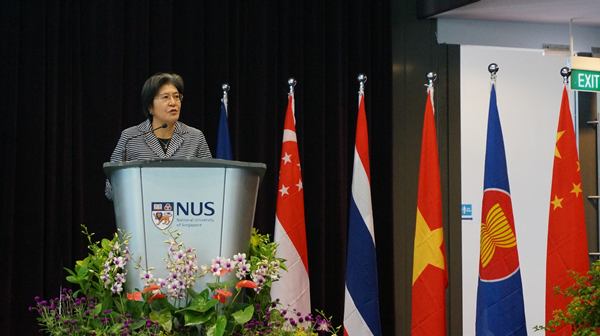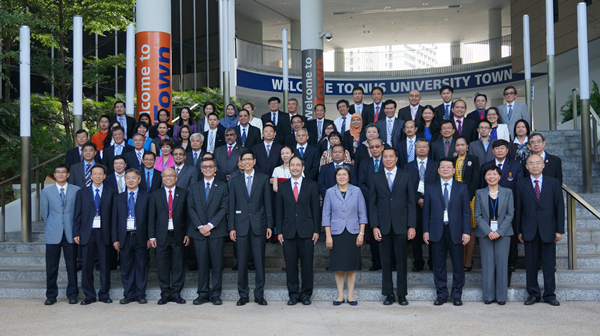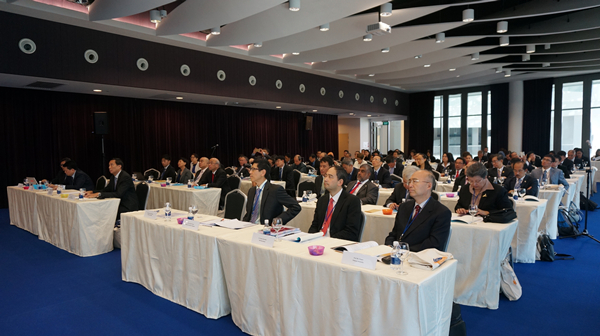On 27-28 July 2015, the 4th ASEAN-China Rectors’ Conference, co-organized by the National University of Singapore (NUS) and ASEAN University Network (AUN), was held in Singapore with the theme of “Bringing New Strategic Thinking to University Collaboration: Challenges for ASEAN-China Partnership”. The Conference was participated by 9 Chinese universities including Beijing University, China Foreign Affairs University, Guangxi University and Yunnan University, and 27 universities from 10 ASEAN Member States. ASEAN-China Centre (ACC) Secretary-General H.E. Mme. Yang Xiuping was invited to attend the Conference and deliver remarks.

Professor Tan Chorh Chuan, President of NUS, delivered welcoming remarks. He opined that ASEAN-China relations had flourished and prospered, and the all-dimensional cooperation had yielded fruitful achievements. China proposed to designate the year 2016 as ASEAN-China Education Exchange Year. The purpose of the Conference was to enhance mutual understanding, explore exchanges among the universities, and chart the future course for cooperation.

Secretary-General Yang Xiuping commended AUN’s achievements in strengthening the partnership and cooperation among leading universities and institutions of higher learning in the region. She expressed that ASEAN and Chinese leaders had achieved substantial consensus on further deepening and expanding cooperation, such as building a Community of Common Destiny and the 21st Century Maritime Silk Road, as well as implementing the "2+7” Cooperation Framework. As the only inter-governmental organization between ASEAN and China, ACC had been playing an active role in enhancing functional cooperation in trade, investment, education, culture and tourism. In the area of education, ACC served as bridge of communication and cooperation among the universities of ASEAN and China, facilitated vocational education exchanges, and actively participated in the China-ASEAN Education Cooperation Week (CAECW).

Secretary-General Yang noted that education guided socio-economic and human resource development, and youth were the future of ASEAN-China relations. ACC looked forward to enhancing communication with AUN and Chinese universities, with a view to further deepening ASEAN-China education cooperation. ACC, keeping pace with the times, endeavored to fulfill the expectations of the peoples and leaders, and continued to contribute to ASEAN-China cooperation and partnership.
Professor Qin Yaqing, President of China Foreign Affairs University and Chinese country coordinator for the Network of ASEAN-China Think-tanks (NEAT), briefed on the development of NEAT and its role in providing intellectual support to ASEAN-China relations. Dr. Choltis Dhirathiti, Deputy Executive Director of AUN, introduced AUN’s efforts in promoting university collaboration between ASEAN and China.
Secretary-General Yang held an interactive dialogue with the rectors from ASEAN and China. The rectors appreciated ACC’s fruitful work since its establishment, and expected to further enhance university collaboration between ASEAN and China by forging strong partnerships with ACC. They hoped that ACC could organize more activities for the youth, and offer more chances for interaction among the young people. Secretary-General Yang engaged in discussions with the rectors on how to further promote ASEAN-China education cooperation.